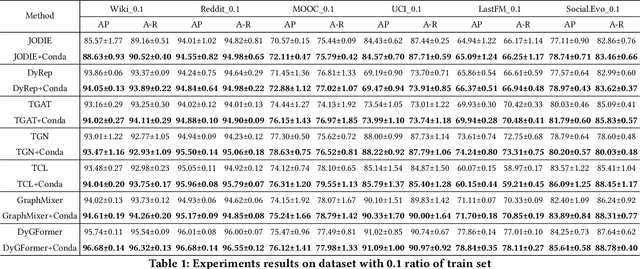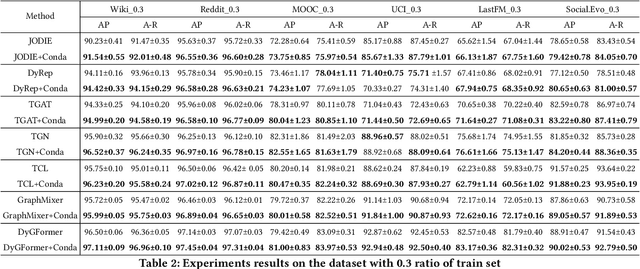Latent Conditional Diffusion-based Data Augmentation for Continuous-Time Dynamic Graph Mode
Paper and Code
Jul 11, 2024



Continuous-Time Dynamic Graph (CTDG) precisely models evolving real-world relationships, drawing heightened interest in dynamic graph learning across academia and industry. However, existing CTDG models encounter challenges stemming from noise and limited historical data. Graph Data Augmentation (GDA) emerges as a critical solution, yet current approaches primarily focus on static graphs and struggle to effectively address the dynamics inherent in CTDGs. Moreover, these methods often demand substantial domain expertise for parameter tuning and lack theoretical guarantees for augmentation efficacy. To address these issues, we propose Conda, a novel latent diffusion-based GDA method tailored for CTDGs. Conda features a sandwich-like architecture, incorporating a Variational Auto-Encoder (VAE) and a conditional diffusion model, aimed at generating enhanced historical neighbor embeddings for target nodes. Unlike conventional diffusion models trained on entire graphs via pre-training, Conda requires historical neighbor sequence embeddings of target nodes for training, thus facilitating more targeted augmentation. We integrate Conda into the CTDG model and adopt an alternating training strategy to optimize performance. Extensive experimentation across six widely used real-world datasets showcases the consistent performance improvement of our approach, particularly in scenarios with limited historical data.
 Add to Chrome
Add to Chrome Add to Firefox
Add to Firefox Add to Edge
Add to Edge